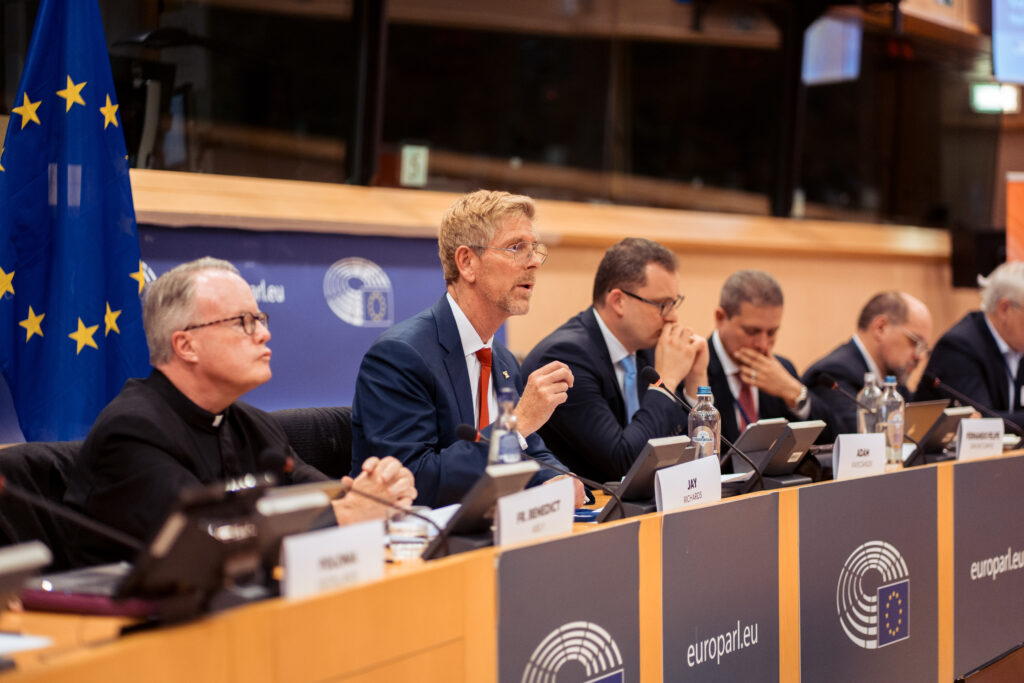Republicans in the U.S. Congress are gearing up to block any major move by the Environmental Protection Agency to regulate greenhouse gases–even though the Supreme Court ordered the agency to do so back in 2007. And even though the Congress itself is clearly not going to do anything else to address the problem in the next two years.
But yesterday we learned there’s a paradox at the heart of this obstructionist strategy. If the EPA doesn’t act or is hamstrung–and if Congress continues to dawdle–then guess what? A new global warming case just taken up by the Supreme Court may therefore stand a better chance of surviving the highest level of review—thus providing another possible way of restricting and punishing the polluters who are contributing to climate change.
The case, Connecticut v. American Electric Power, has been wending its way through the legal system since 2004. Meanwhile, related cases, like Kivalina v. ExxonMobil, have sprung up to join it. Let’s call them the “global warming tort cases.” They have this in common: They try to directly sue major companies who contribute to global warming for damages under a common law doctrine called “public nuisance.”
In Connecticut v. AEP, it’s a group of U.S. states and their attorneys general—in many ways the most powerful global warming plaintiffs of all, as they represent large populations of people and vast areas of land–claiming that several large utilities are causing them major damages through climate change and its associated impacts. In Kivalina, it’s a small Alaskan village that has been extremely and acutely damaged by climate change–it will literally need to be moved–suing the big boys: ExxonMobil and two dozen other companies for monetary damages, and more.
None of these cases have yet gotten to a full scale trial. Rather, there has been a multi-year hubbub just to determine whether they’re allowed to go there. For as I wrote in 2008 of the tobacco-style “global warming tort cases”:
Such cases will require the direct laying of blame—proving that a particular company’s (or industry’s) emissions significantly or substantially contributed to a particular climate-related problem. Faced with such claims, the defendants—or rather, their expensive lawyers—can be expected to relentlessly challenge claims of scientific causation. This, in turn, could trigger a massive courtroom battle over climate science, complete with dueling experts delivering conflicting testimony across a vast gulf of charts and graphs. Try imagining global warming’s equivalent of the Scopes “Monkey” Trial, and you’ll have some idea what might be coming.
So is it really coming? Well, that’s what the Supreme Court will decide.
Connecticut v. AEP was originally dismissed by district court judge Loretta Preska in New York City. She said the plaintiffs were essentially asking her to go beyond the scope of her office—“political questions are not the domain of judges,” she wrote. After all, we’re all waiting on Congress or the administration or the international community to deal with global warming, right? (Riiiiight.)
But the U.S. Court of Appeals for the Second Circuit disagreed strongly. It ruled that the question at stake was not “non-justicable political” one, and empowered the case to go forward.
So then the power company lawyers brought in the Supremes—even as the Obama administration complicated matters when acting solicitor general Neal Katyal shockingly agreed with industry that the case shouldn’t go forward because EPA was taking action to deal with greenhouse gas emissions. (Admittedly, this was before the 2010 elections.)
Which brings us to the Supreme Court. Any realistic survey of the political and regulatory landscape today suggests little reason to expect that global warming is going to be dealt with by Congress (which is feeling obstructionist). As for EPA? It seems likely to be obstructed.
If both avenues are blocked, and there’s no other clear climate remedy, will the Supremes really say that states being damaged by global warming can’t sue the polluters doing it?
I’m no lawyer. But you don’t need to be one in order to see that doing so would shut off a pretty important venue—the legal one—for redressing a problem the other relevant sectors (political, regulatory) aren’t handling.
After all, the states suing—who didn’t want the Supreme Court to take up this case—fully admit that if EPA takes strong action to cut greenhouse gas emissions, their case goes away. But it hasn’t yet. And in the current political climate, Republicans are essentially saying, over my dead body.
So stand by. Maybe we’ll get that Scopes Trial after all.
Subscribe to our newsletter
Stay up to date with DeSmog news and alerts






